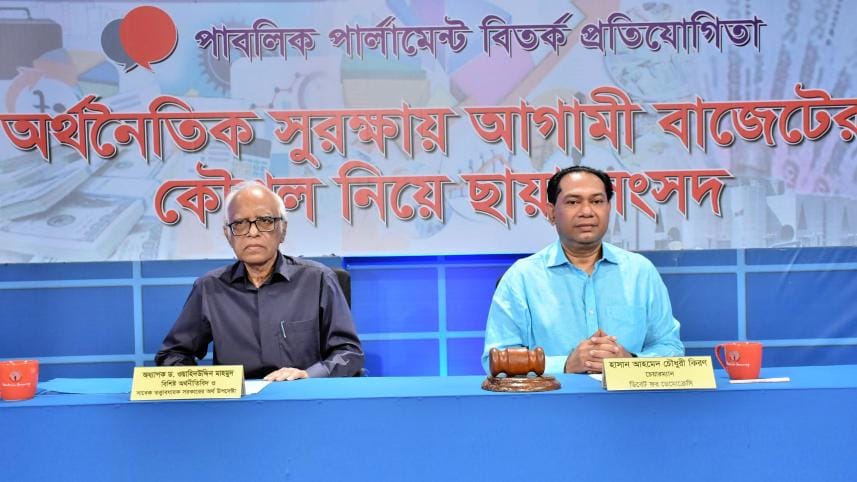Cut spending to save money: Wahiduddin Mahmud

The government should reduce expenditure as it is not possible to increase revenue collection suddenly for the implementation of the development projects, a noted economist said today.
Implementing development projects by borrowing money from local and foreign sources is not a good decision, said Wahiduddin Mahmud, also a former adviser to a caretaker government.
The ratio of tax to gross domestic product (GDP) is not growing, rather the ratio is declining to some cases, he said.
It is difficult to meet the expenditure for development projects from the current level of revenue collection as the government has to spend a lot of money for salaries and it is not possible to reduce such fixed cost, he said.
The economist made the comments at a debate competition on 'Increasing of revenue collection should be the main strategy for protection of the economy in the next budget' organised by the Debate For Democracy (DFD) at Bangladesh Film Development Corporation in Dhaka.
Mahmud said the government can print new currency notes for meeting the budget deficit and meet the expenditure, but it is also not a good decision as it is harmful for the economy.
He also said Bangladesh sometimes feels complacent that the country never becomes default in foreign loan repayment and there is a space for more foreign loan, but it can create a loan trap for the country.
But, the faulty budget management can also create a loan trap for the country even if the borrowing takes place from the domestic sources.
While moderating the competition, Hassan Ahmed Chowdhury Kiron, chairman of the DFD, suggested 10 points for improving food safety, reducing the incentives on export receipts and increasing allocation in social safety net.
Eden Mohila College won the debate competition defeating the team of Barishal University.



 For all latest news, follow The Daily Star's Google News channel.
For all latest news, follow The Daily Star's Google News channel.
Comments